New Writing by Anna M. Agathangelou

Globalizations, 2021
Modernist capitalist iterations of time of linear and messianic teleologies/eschatologies are co-... more Modernist capitalist iterations of time of linear and messianic teleologies/eschatologies are co-produced with the nation-state and the global ecological capitalist order. This article contests racial ecological capitalism by focusing on its language of time for two dominant structures: first, the linear, that is, the flow of a determined sequence of separable measurable units in one direction and capitalist ecology and second, retrojection, that is, the conjuring up of the moment of enclosure and capture as the ‘origin’ of racial ecological capitalism which supposedly testifies to its necessity. I draw on the 2018 report from the Intergovernmental Panel on Climate Change (IPCC) and work by Naomi Oreskes and Erik Conway to register the co-production of the temporal with the ecological. In conversation with Octavia Butler, I argue that grappling with these two time approaches and ecology allows for a structural engagement with the emergence of and generation of the possible conditions for a decolonial planetary relations as acts of invention.
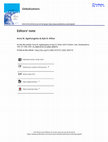
Globalizations , 2021
Dominant conceptions of ecology and history are losing their power. Despite many critiques of sch... more Dominant conceptions of ecology and history are losing their power. Despite many critiques of scholars’ writing on slavery, anti-blackness, and colonization, authors still often draw from the same wells, those of scientific knowledge (i.e. use of technology to control by efficiency and sacrifice) and metaphysics based on certain ethical, aesthetic, and social values (e.g. capital valuation processes, innovation, technical production). In so doing, they end up co-framing, co-producing, co-organizing, and co-ordering our ecologies and knowledge production, drawing on governance and security devices to order the world. But as these framings and orderings are founded on the division and obliteration of biodiversity and differences, their problematic course is now faltering.
Thus, in this issue, we engage a few questions. How are state and international institutions’ multiple ecological reforms instrumental to the entrenchment of a corporate transnational global economy? How do these institutions draw on dominant understandings of temporality (i.e. progress as the primary value of social life; the capitalist economic story as the only efficient way of being) to order structures of time and the time ecologies? How are questions of science and non-science settled? How are questions of ecological resilience and proof of it settled and at what registers? What is a good reasoning and what is a bad reasoning within these debates? What role do notions of time and temporality play in them? How does different living bodies’ recalcitrance to conform to the modern values of the theoretico-experimental sciences and technologies challenge our notion of ethical institutions and protections? To sum up, the aim of this special issue is to grapple with these critiques and to look beyond ecology as a form of consensus and settlement. Ecology is an indeterminate existence, and yet, time is used as a colonial and enslaving governance technology of the entire set of relationships and life conditions.
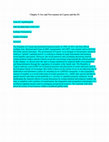
Susan Gooden, editor Global Equity in Administration: Nervous Areas of Government. Routledge., 2020
The Republic of Cyprus decriminalized homosexuality in 1998. In 2011, the first official Lesbian,... more The Republic of Cyprus decriminalized homosexuality in 1998. In 2011, the first official Lesbian, Gay, Bisexual and Trans (LGBT) organization, ACCEPT, was created, and in 2014 the first Pride march took place. The government of Cyprus, in its struggle to Europeanize and posit itself as a “global” capitalist power, is working to change its legal instruments and promote social equality and justice. However, the social practices and circulating discourses used by certain political leaders and the Church reveal the convictions lying beneath the official policies. In this chapter, we discuss how the state is being constituted by imperial shifts of accumulation and financialization through the regulation of sexuality in the family unit. The Republic of Cyprus endorses a pro-LGBT set of material practices and discourses to orient and posit itself in the European family of sovereigns. But while it draws on the notion of sex as an important site of deliberation and distributive justice by attending to its LGBTQI community, it also jeopardizes notions of equality as a social redressing of sexual questions (i.e., AIDS, hate speech and threats against queers) and other social problems (i.e., poverty or capitalist property relations). In not challenging the material effects of sexual discourses by certain political and religious leaders, the state is complicit with a politics of moralization, the integration and recognition technologies of a neoliberal capitalist project and its contingent sexual/racial sciences. We conclude with ideas about the notion of nervousness within a neoliberal global order.
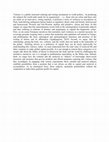
Editors: S. A. Hamed Hosseini, Barry K. Gills, James Goodman, Sara Motta Handbook on Transformative Global Studies, 2020
Violence is a global structural ordering and sorting mechanism in world politics. In producing th... more Violence is a global structural ordering and sorting mechanism in world politics. In producing the subjects the world order needs for its regeneration-i.e., those who are rulers and those who are ruled-as an innovative, zoning machine, it performs a series of violences as inscriptions on flesh, materializing ambiguous human bodies as regulatory ideals; male and female, heterosexual and homosexual, Western and Not-Westem, modem and primitive, citizen and alien. In this chapter we argue that this materialization occurs both as the ontologization of particular subjects and their ordering in relations of distance and propinquity as regards the hegemonic center. First, we de-center European narratives that normalize such violences as a neutral necessity for sovereign grounds, keeping intact a notion that modernity and capitalism self-started in Europe, and problematize the basic ontological and epistemological structures and premises of the writing of history and its affirmation (Agathangelou, 2019). Second, we argue, that the relationship, among the body, sex, violence, and the world, does not speak to the materiality of the global. Defining slavery as a prehistory of capital does not do much analytically for understanding this violence; rather, we must understand how the total value of enslaved life and labor continues to make global capital possible. It is not enough to reinsert these categories or to simply talk about the failure of theory to historicize the body and the world by challenging the normative narratives, nor is it enough to problematize masculinity or the White man. Instead, third, we argue how the colonial and the enslaved as "objects" of knowledge short-circuit structures and promises that govern juridical and ethical programs exposing this violence that they reconfigure. In engaging with various experiments, these colonial and enslaved subjects establish possibilities from a position that is not always an alibi to capital and enslaved to accumulation. As an ontological force, these subjects, unshackle potentialities without the compulsion to make them generate profits for capital.
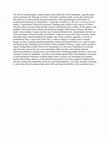
Emily Merson (editor) 'The Art of Global Power: Artwork and Popular Cultures as World-Making Practices', 2019
The role of colonial images remains largely unaccounted for in IR scholarship, a gap this paper s... more The role of colonial images remains largely unaccounted for in IR scholarship, a gap this paper seeks to partially fill. Drawing on Fanon, I articulate a global raciality visual optic framework that allows us to read radically dominant racialized visual epistemologies and methods of positing and structuring in world politics. I argue that visuality (i.e., the way we see) as a site of politics is onto-politico affectively-structural, enabling some realities at the expense of others, with dire effects on some bodies and the accrual of dominant power to others. In this paper I read Qaddafi's body beyond the familiar and dominant readings of him being a dictator and brutal leader. Such readings, I argue miss the ways he dressed himself, thus, using fashion and dress to frame and shape his body for public presentation. Images are not neutral. They articulate, orient, and make frames about ontological becomings; they orient, structure, negotiate, re-invent, or problematize how we know the world. Thus, a radical reading of visuality and its colonial images, as sites of making/unmaking dominant colonial and imperial frames are a step towards a decolonial project. Reading beyond familiar frames, Qaddafi's fashion, I argue, makes possible a radical reading theory about what sort of commentary (or what sort of alternatives to colonial and enslaving systems) do anti-non-conforming clothes provide. Anti-colonial and anti-enslavement fashion is being used as a powerful tool for challenging global raciality's norms and valuation systems of capitalism. Such dress and clothing speaks back to the dominant visual gaze of such ontological transitions in global politics and reorients us by disrupting the unspoken promise that human coherency is and should be premised on the misrecognition, displacement, and non-seeing of the materiality of slavery terror and fungibility, even at the moment of erecting it, and on the affective pleasure that comes with such hyper/invisibility of the constituted slave.
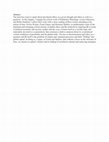
The time has come to speak about decolonial ethics as a given thought and ethos as well as a ques... more The time has come to speak about decolonial ethics as a given thought and ethos as well as a question, In this chapter, I engage the critical work of Kimberley Hutchings, Louiza Odysseos, and Robin Dunford. I inflect their work with a close reading of three writers attending to the notion of time, Sylvia Wynter, Franz Fanon, and Hortense Spillers, to problematize some of the dominant and emerging critical notions of global ethics and the political by inquiring IR in terms of political economy and security studies and the ways it forms itself as a circular logic and materiality devoted to a systematicity that continues a faith to amnesia about its co-produced violent conditions of possibility and the global order. The key to decolonization and ethics as a question and IR itself is the problem of origins and valuation processes and their " folding " into global capital. In doing so, I argue, as Fanon and Spillers, that without a focus on the structure of time, we remain in capital's frames and its folding of un/ethical colonial and enslaving strategies.
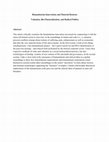
This article critically examines the humanitarian innovation movement by conjuncting it with the ... more This article critically examines the humanitarian innovation movement by conjuncting it with the stem-cell biotech sector to trace how in the assemblage of matter and code (i.e., a valuation process) conflicts emerge about notions of suffering, pain, enhancement as well as economies that alter the very material forms of life and economy. In the first section, I look at two things simultaneously: a bio-humanitarian project – the Cypriot search for and DNA identification of the postwar missing – and clinical trials performed by the biotech corporate sector. I trace their respective methods of value and valuation as a social molecuralized practice, but also technologies of kinship, creation of new notions of life and death and governance. In the second section, I take a close look at the emergence of humanitarian and clinical labor as a global assemblage to show how humanitarian organizations and transnational corporations orient themselves toward certain labor assemblages in the search " anywhere " to learn about, borrow, and translate technologies supporting the " business " of empire. I finish with broader theoretical implications of the humanitarian work postwar and the clinical labor of patients in stem cell therapies.
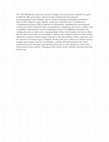
Meanings of Bandung Postcolonial Orders and Decolonial Visions
The 1955 Bandung Conference and the multiple movements that embodied its spirit worldwide offer p... more The 1955 Bandung Conference and the multiple movements that embodied its spirit worldwide offer provocative notions of anti-colonial and anti-national internationalisms and solidarity used to redress lynching, colonialism and theft of land. In this chapter I argue that the conference culminated in a revolutionary constitutional moment with worldwide reverberations, redefining the international community and its dominant ideas of unipolarity or bipolarity governance, politics and sensibilities. Informed by sexual revolutionary poetics of solidarity orientation, my reading attends not only to the conceptual logic of the texts I analyse, but also to their literary dimensions and visceral charges. I observe the tonalities of their words and the distinctive contours of their images to point to how the medium of the conference and the material of writing express solidarity. Writing this piece reflects my deeper need to imagine and conjure a poetics of solidarity, a dream of transformation, the word's construction of an alternate international whose locus is the tabula rasa, that is, the disinvestment from and the " changing of the whole social [colonial] structure from the bottom up. "
Books by Anna M. Agathangelou

Routledge , 2022
This book probes the interconnections of time and ecology in order to spark our imagination and i... more This book probes the interconnections of time and ecology in order to spark our imagination and inspire us to re-think the planetary, ecology, and otherwise. It presents debates that interrogate and elucidate the anxieties of the known and the unknown of this world and the planetary beyond, sifting through temporal accounts of the Anthropocene, human beings, and climate change.
The chapters in this edited volume spur conversations with different thought systems and their underlying assumptions about the composition of structures of time and contingent temporalities. The authors engage rising temperatures in the oceans and air, the consequences, intended and unintended, of investments in various forms of "development", and the potential catastrophe unfolding in real time. Recent temporal strategies such as mitigation and adaptation to the "climate crisis" are challenged as they further compound and commodify the inquiry, the understanding and responses to environmental degradations, extractions, and displacements. Anti-colonial and decolonial debates about the structures of time, the planetary, and ecology are crucial contributions of this volume. Further, privileging the vantage points of the colonized and enslaved, the authors of this volume challenge dominant universal, cyclical, and retrospective structures of time and the planetary. Through research, poetry, art, and popular cultural analyses, the authors attend to the ways that the struggles of the "submerged," indigenous and black communities for climate justice become coded as a global warming crisis.
This volume grapples with how racial climate struggles and unrest become mobilized both as a source of paralysis and as an opportunity for further expropriation and expansion of data accumulation markets for settler planetary projects all in the name of global warming. Ultimately, the authors in this volume argue that conventional attempts at exploiting the planetary all depend upon ideas of conquest and the mastery and control of ecologies, global governance, and individual behaviors. In this sense, fears about the unknown future of our planet miss what is at stake in the structures of time, the question of creation and invention.
The chapters in this book were originally published as a special issue of the journal, Globalizations.

Time transforms the way we see world politics and insinuates itself into the ways we act. In this... more Time transforms the way we see world politics and insinuates itself into the ways we act. In this groundbreaking volume, Agathangelou and Killian bring together scholars from a range of disciplines to tackle time and temporality in international relations. The authors – critical theorists, artists, and poets – theorize and speak from the vantage point of the anticolonial, postcolonial, and decolonial event. They investigate an array of experiences and structures of violence – oppression, neocolonization, slavery, war, poverty and exploitation – focusing on the tensions produced by histories of slavery and colonization and disrupting dominant modes of how we understand present times.
This edited volume takes IR in a new direction, defatalizing the ways in which we think about dominant narratives of violence, ‘peace’ and ‘liberation’, and renewing what it means to decolonize today’s world. It challenges us to confront violence and suffering and articulates another way to think the world, arguing for an understanding of the ‘present’ as a vulnerable space through which radically different temporal experiences appear. And it calls for a disruption of the "everyday politics of expediency" in the guise of neoliberalism and security.
This volume reorients the ethical and political assumptions that affectively, imaginatively, and practically captivate us, simultaneously unsettling the familiar, but dubious, promises of a modernity that decimates political life. Re-animating an international political, the authors evoke people’s struggles and movements that are neither about redemption nor erasure, but a suspension of time for radical new beginnings.
Stories about institutions and regimes that have failed us are echoing worldwide. This book criti... more Stories about institutions and regimes that have failed us are echoing worldwide. This book critically engages the multiple uprisings in the Middle East and North Africa (MENA) following the self-immolation of Tunisian street vendor Mohamed Bouazizi in December 2010. It brings together authors who critically the unstoppable force unleashed in the streets of Tunisia, Egypt, Bahrain, Syria, Libya and Yemen.
Articles by Anna M. Agathangelou

Environmental Politics , 2024
Contestations over temporal categories are marginalized in transition debates. This article reori... more Contestations over temporal categories are marginalized in transition debates. This article reorients such debates by exploring the structural relationship between time and just transition or planetary justice. I demonstrate how transition, defined as governments and inter-state institutions’ efforts to shift to a lower carbon future, is inscribed with categories of time and certain notions of justice. I argue the recent acknowledgement of the link of colonization with climate change by the Intergovernmental Panel on Climate Change does not necessarily disrupt the deployment of a linear and recursive (universal) notion of capital time nor does it challenge the co-constitution of racialized accumulation institutions and governance power technologies, with dire effects on a ‘just transition.’ I then draw on Frantz Fanon’s idea of invention as an event without sense or content, a decolonial violence whose subject plunges into an abyss and whose ‘measure’ or possibility is always unprecedented.

Journal of Feminist Family Therapy, 2018
Armed conflicts disrupt families worldwide. This study examines
the adaptation process of Greek C... more Armed conflicts disrupt families worldwide. This study examines
the adaptation process of Greek Cypriot refugee families
who suffered the traumas of displacement and death of family
members in 1974. Members of 30 refugee and 12 non-refugee
families (N = 118) completed 10 self-report inventories measuring
their resources, coping styles, well-being, and traumatic
stress symptoms. Results indicate that the resources of social
support, income, and adaptability, gender, and seeking support
predicted adaptation to war trauma. Twenty-two percent
of the refugee family sample and none of the non-refugee
family sample could be diagnosed with post-traumatic stress
disorder (PTSD). Of those diagnosed with PTSD, 94% were
women. Families with a PTSD-afflicted member reported
lower well-being and more support seeking behaviors.
Implications for working with refugee families are discussed.
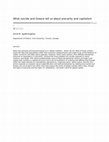
Globalizations , 2018
Many see precarity and precariousness as a 'global condition', others do not. Most of these autho... more Many see precarity and precariousness as a 'global condition', others do not. Most of these authors share the idea that populations suffer from economic displacements and ought to be at the forefront of states' economic and labor policy agendas. However, these same authors, from different disciplines, presume an equivalency in precarity, missing that many peoples are racially exposed to injury, violence, and death. This article problematizes some of these disciplinarian notions and logics and argues that raciality is a global structure and a set of institutions of ordering and differencing through which the state resolves its contradictory demands by 'checking claims' about justice. Second, this article expands an analytics about subjectification and biofinancialization by reading how suicide and Greece are not projects but rather sites that expose the works of global raciality which aids, through the logics of precarity and the logics of 'obliteration,' the state's work for global capital.

International Relations and #MeToo: Confronting Racialized Sexual Violence e-ir.info/2018/03/30/i... more International Relations and #MeToo: Confronting Racialized Sexual Violence e-ir.info/2018/03/30/international-relations-and-metoo-confronting-racialized-sexual-violence/ Tarana Burke, an American civil rights activist uttered the phrase " Me Too " in 2006 to raise awareness of the structural pervasiveness of sexual abuse and assault in society. As the creator and developer of Just Be, an organization she founded that same year, she worked to benefit young women of color. Just Be Inc. was created to " guide young women of color in their process of self-discovery so that they may find the tools necessary to be empowered past their 'risk' and around their circumstances in order to set or reset the trajectory of their lives. " Burke is still active giving plenary talks and runs her organization spending much of her time listening and talking with girls about sexual harassment and abuse. Her vision was to build a movement to fight all forms of sexual violence focusing on the most vulnerable groups in American society: black and brown survivors. Calling for solidarity and support for these survivors, Burke's work and message clearly presaged and predated the mainstreaming of #MeToo that took off in 2017. It is laudable that this #MeToo moment has brought down or marred the reputations of titans of industry, Hollywood, politicians and public officials, powerful men across the arts, sciences, literature, the medical and legal establishments, and academic spaces, which many of us reading this post are part of. The hash tag has become a popular way of identifying and exposing what has for the longest time been the lived realities of white cis-dominated, heterosexist patriarchy: sexual coercion and violence. Yet, Burke's earlier Me Too did not take root in public consciousness. This is surely a puzzle that feminists must address. Why has it
ABSTRACT
Armed conflicts disrupt families worldwide. This study examines the adaptation process ... more ABSTRACT
Armed conflicts disrupt families worldwide. This study examines the adaptation process of Greek Cypriot refugee families who suffered the traumas of displacement and death of family members in 1974. Members of 30 refugee and 12 non-refugee families (N = 118) completed 10 self-report inventories measuring their resources, coping styles, well-being, and traumatic stress symptoms. Results indicate that the resources of social support, income, and adaptability, gender, and seeking support predicted adaptation to war trauma. Twenty-two percent of the refugee family sample and none of the non-refugee family sample could be diagnosed with post-traumatic stress disorder (PTSD). Of those diagnosed with PTSD, 94% were women. Families with a PTSD-afflicted member reported lower well-being and more support seeking behaviors. Implications for working with refugee families are discussed.

Politics and Gender, 2017
International relations (IR) feminists have significantly impacted the way we analyze the world a... more International relations (IR) feminists have significantly impacted the way we analyze the world and power. The project/process that has led to the separation/specialization of feminist security studies (FSS) and feminist global political economy (FGPE) does not constitute progress but instead ends up embodying forms of violence that erase the materialist bases of our intellectual labor’s divisions (Agathangelou 1997), the historical and social constitution of our formations as intellectuals and subjects. This amnesiac approach evades our personal lives and colludes with those forces that allow for the violence that comes with abstraction. These “worrisome signs” should be explained if we are to move FSS and FGPE beyond a “merger” (Allison 2015) that speaks only to some issues and some humans in the global theater. Notions of value, reproduction, and security—concepts and practices—are both “security” and “economy” concerns. From a slave/post/neo/ colonial practice’s point of view, normativized ideas—value, primitive accumulation, reproduction, militarization, (in)security—are interrupted
and stretched. Our understanding of violence becomes broader. Articulating a decolonial/feminist/queer compositional reading, I problematize this entrenched divide of FGPE/FSS research program. This reading interrupts normative global reproductions of meaning and value across time, asking new political questions that attend to the highest stake of politics: existence. It places untimely moments/products in poetic relationship and generates possibilities of meaning and value for an existence otherwise.











Uploads
New Writing by Anna M. Agathangelou
Thus, in this issue, we engage a few questions. How are state and international institutions’ multiple ecological reforms instrumental to the entrenchment of a corporate transnational global economy? How do these institutions draw on dominant understandings of temporality (i.e. progress as the primary value of social life; the capitalist economic story as the only efficient way of being) to order structures of time and the time ecologies? How are questions of science and non-science settled? How are questions of ecological resilience and proof of it settled and at what registers? What is a good reasoning and what is a bad reasoning within these debates? What role do notions of time and temporality play in them? How does different living bodies’ recalcitrance to conform to the modern values of the theoretico-experimental sciences and technologies challenge our notion of ethical institutions and protections? To sum up, the aim of this special issue is to grapple with these critiques and to look beyond ecology as a form of consensus and settlement. Ecology is an indeterminate existence, and yet, time is used as a colonial and enslaving governance technology of the entire set of relationships and life conditions.
Books by Anna M. Agathangelou
The chapters in this edited volume spur conversations with different thought systems and their underlying assumptions about the composition of structures of time and contingent temporalities. The authors engage rising temperatures in the oceans and air, the consequences, intended and unintended, of investments in various forms of "development", and the potential catastrophe unfolding in real time. Recent temporal strategies such as mitigation and adaptation to the "climate crisis" are challenged as they further compound and commodify the inquiry, the understanding and responses to environmental degradations, extractions, and displacements. Anti-colonial and decolonial debates about the structures of time, the planetary, and ecology are crucial contributions of this volume. Further, privileging the vantage points of the colonized and enslaved, the authors of this volume challenge dominant universal, cyclical, and retrospective structures of time and the planetary. Through research, poetry, art, and popular cultural analyses, the authors attend to the ways that the struggles of the "submerged," indigenous and black communities for climate justice become coded as a global warming crisis.
This volume grapples with how racial climate struggles and unrest become mobilized both as a source of paralysis and as an opportunity for further expropriation and expansion of data accumulation markets for settler planetary projects all in the name of global warming. Ultimately, the authors in this volume argue that conventional attempts at exploiting the planetary all depend upon ideas of conquest and the mastery and control of ecologies, global governance, and individual behaviors. In this sense, fears about the unknown future of our planet miss what is at stake in the structures of time, the question of creation and invention.
The chapters in this book were originally published as a special issue of the journal, Globalizations.
This edited volume takes IR in a new direction, defatalizing the ways in which we think about dominant narratives of violence, ‘peace’ and ‘liberation’, and renewing what it means to decolonize today’s world. It challenges us to confront violence and suffering and articulates another way to think the world, arguing for an understanding of the ‘present’ as a vulnerable space through which radically different temporal experiences appear. And it calls for a disruption of the "everyday politics of expediency" in the guise of neoliberalism and security.
This volume reorients the ethical and political assumptions that affectively, imaginatively, and practically captivate us, simultaneously unsettling the familiar, but dubious, promises of a modernity that decimates political life. Re-animating an international political, the authors evoke people’s struggles and movements that are neither about redemption nor erasure, but a suspension of time for radical new beginnings.
Articles by Anna M. Agathangelou
the adaptation process of Greek Cypriot refugee families
who suffered the traumas of displacement and death of family
members in 1974. Members of 30 refugee and 12 non-refugee
families (N = 118) completed 10 self-report inventories measuring
their resources, coping styles, well-being, and traumatic
stress symptoms. Results indicate that the resources of social
support, income, and adaptability, gender, and seeking support
predicted adaptation to war trauma. Twenty-two percent
of the refugee family sample and none of the non-refugee
family sample could be diagnosed with post-traumatic stress
disorder (PTSD). Of those diagnosed with PTSD, 94% were
women. Families with a PTSD-afflicted member reported
lower well-being and more support seeking behaviors.
Implications for working with refugee families are discussed.
Armed conflicts disrupt families worldwide. This study examines the adaptation process of Greek Cypriot refugee families who suffered the traumas of displacement and death of family members in 1974. Members of 30 refugee and 12 non-refugee families (N = 118) completed 10 self-report inventories measuring their resources, coping styles, well-being, and traumatic stress symptoms. Results indicate that the resources of social support, income, and adaptability, gender, and seeking support predicted adaptation to war trauma. Twenty-two percent of the refugee family sample and none of the non-refugee family sample could be diagnosed with post-traumatic stress disorder (PTSD). Of those diagnosed with PTSD, 94% were women. Families with a PTSD-afflicted member reported lower well-being and more support seeking behaviors. Implications for working with refugee families are discussed.
and stretched. Our understanding of violence becomes broader. Articulating a decolonial/feminist/queer compositional reading, I problematize this entrenched divide of FGPE/FSS research program. This reading interrupts normative global reproductions of meaning and value across time, asking new political questions that attend to the highest stake of politics: existence. It places untimely moments/products in poetic relationship and generates possibilities of meaning and value for an existence otherwise.
Thus, in this issue, we engage a few questions. How are state and international institutions’ multiple ecological reforms instrumental to the entrenchment of a corporate transnational global economy? How do these institutions draw on dominant understandings of temporality (i.e. progress as the primary value of social life; the capitalist economic story as the only efficient way of being) to order structures of time and the time ecologies? How are questions of science and non-science settled? How are questions of ecological resilience and proof of it settled and at what registers? What is a good reasoning and what is a bad reasoning within these debates? What role do notions of time and temporality play in them? How does different living bodies’ recalcitrance to conform to the modern values of the theoretico-experimental sciences and technologies challenge our notion of ethical institutions and protections? To sum up, the aim of this special issue is to grapple with these critiques and to look beyond ecology as a form of consensus and settlement. Ecology is an indeterminate existence, and yet, time is used as a colonial and enslaving governance technology of the entire set of relationships and life conditions.
The chapters in this edited volume spur conversations with different thought systems and their underlying assumptions about the composition of structures of time and contingent temporalities. The authors engage rising temperatures in the oceans and air, the consequences, intended and unintended, of investments in various forms of "development", and the potential catastrophe unfolding in real time. Recent temporal strategies such as mitigation and adaptation to the "climate crisis" are challenged as they further compound and commodify the inquiry, the understanding and responses to environmental degradations, extractions, and displacements. Anti-colonial and decolonial debates about the structures of time, the planetary, and ecology are crucial contributions of this volume. Further, privileging the vantage points of the colonized and enslaved, the authors of this volume challenge dominant universal, cyclical, and retrospective structures of time and the planetary. Through research, poetry, art, and popular cultural analyses, the authors attend to the ways that the struggles of the "submerged," indigenous and black communities for climate justice become coded as a global warming crisis.
This volume grapples with how racial climate struggles and unrest become mobilized both as a source of paralysis and as an opportunity for further expropriation and expansion of data accumulation markets for settler planetary projects all in the name of global warming. Ultimately, the authors in this volume argue that conventional attempts at exploiting the planetary all depend upon ideas of conquest and the mastery and control of ecologies, global governance, and individual behaviors. In this sense, fears about the unknown future of our planet miss what is at stake in the structures of time, the question of creation and invention.
The chapters in this book were originally published as a special issue of the journal, Globalizations.
This edited volume takes IR in a new direction, defatalizing the ways in which we think about dominant narratives of violence, ‘peace’ and ‘liberation’, and renewing what it means to decolonize today’s world. It challenges us to confront violence and suffering and articulates another way to think the world, arguing for an understanding of the ‘present’ as a vulnerable space through which radically different temporal experiences appear. And it calls for a disruption of the "everyday politics of expediency" in the guise of neoliberalism and security.
This volume reorients the ethical and political assumptions that affectively, imaginatively, and practically captivate us, simultaneously unsettling the familiar, but dubious, promises of a modernity that decimates political life. Re-animating an international political, the authors evoke people’s struggles and movements that are neither about redemption nor erasure, but a suspension of time for radical new beginnings.
the adaptation process of Greek Cypriot refugee families
who suffered the traumas of displacement and death of family
members in 1974. Members of 30 refugee and 12 non-refugee
families (N = 118) completed 10 self-report inventories measuring
their resources, coping styles, well-being, and traumatic
stress symptoms. Results indicate that the resources of social
support, income, and adaptability, gender, and seeking support
predicted adaptation to war trauma. Twenty-two percent
of the refugee family sample and none of the non-refugee
family sample could be diagnosed with post-traumatic stress
disorder (PTSD). Of those diagnosed with PTSD, 94% were
women. Families with a PTSD-afflicted member reported
lower well-being and more support seeking behaviors.
Implications for working with refugee families are discussed.
Armed conflicts disrupt families worldwide. This study examines the adaptation process of Greek Cypriot refugee families who suffered the traumas of displacement and death of family members in 1974. Members of 30 refugee and 12 non-refugee families (N = 118) completed 10 self-report inventories measuring their resources, coping styles, well-being, and traumatic stress symptoms. Results indicate that the resources of social support, income, and adaptability, gender, and seeking support predicted adaptation to war trauma. Twenty-two percent of the refugee family sample and none of the non-refugee family sample could be diagnosed with post-traumatic stress disorder (PTSD). Of those diagnosed with PTSD, 94% were women. Families with a PTSD-afflicted member reported lower well-being and more support seeking behaviors. Implications for working with refugee families are discussed.
and stretched. Our understanding of violence becomes broader. Articulating a decolonial/feminist/queer compositional reading, I problematize this entrenched divide of FGPE/FSS research program. This reading interrupts normative global reproductions of meaning and value across time, asking new political questions that attend to the highest stake of politics: existence. It places untimely moments/products in poetic relationship and generates possibilities of meaning and value for an existence otherwise.
Huddled within the most influential theorisations and praxes of
war and violence are imaginations of collating masculinities, texts
and their embodiments. Interpreting and reading my mother as a
non-dominant body, and her stories about war, violence, and
Cyprus as re-iterative corporeal insights and practices challenging
such toxic masculinities, I argue that such performances and
embodiments (what I call living archives), albeit with multiple
tensions, re-orient us to emerging decolonial horizons. In doing
so, I directly challenge and unsuture the complacent IR historiographies
of security and war and the ways they insist on composing
and writing by bringing together certain archives (i.e., images
of violent places and state documents) and silencing those which
systematically and consistently point to modernity’s violent frameworks
including their production of violent masculinities on which
extinguishment and futures lie. Such an insistence colludes with
certain toxic regimes of representation expecting certain subjects,
sovereigns, and institutions to order and reiterate (produce) colonial
and violent racialized masculine (and racialized feminized)
practices between ourselves and the world. Living archives are
also those invented signs, imaginations, and excesses that press
materiality and its impasses (i.e., in the form of capture, blackness,
non-genders, etc. and resolution of signs and fictions), exposing
the limits of modernity’s fictioning, and against any resolution and
labor that produces violence all the while sublating it.
The notions of failure and denial are co-constitutive of both “global” theory and social order. Though these concepts have been used to evoke an array of metaphors and images to understand the condition of international relations as a knowledge production site and in relation to other social sciences, they have not been deemed pivotal for much theorizing of world politics’ events, including the “success” of a sovereign state, or the subjects and knowledge production of decolonial realities. The article critically assesses how the term failure is used by IR’s scholarly community as signifier and analogy and what it signifies and analogizes. It grapples with Bruno Latour’s “The Immense Cry Channeled” by Pope Francis and ‘“Love your Monsters.’” It concludes with a discussion of the ethics of critical theory and its emphasis on critique. I problematize its critical moves to lodge racializations in the enslaved and colonized body and body politic of ‘failed’ states, and the normative projects it bolsters. I also point to its broader social and political implications, including its acknowledging of certain publics at the expense of others and its death limits in times of terror and the Anthropocene. I finally argue for a ‘global’ decolonizing social analysis that in an Fanonian sense, is a “real leap” as it introduces “invention into existence” by rupturing evolutionary trajectories and linear temporalities (i.e., pure immanence, or transcendentalism).
is of utmost relevance. First, Fanon’s work allows us to think dialectics along with ‘globality’ and to confronting dominant presumptions about a Manichean world: anarchy, order, and ‘bodies.’ He focuses on colonization and the White – Black relation and the radical dehumanization of the Other (Black, colonial slave, non-European, etc.). Second, his engagement of colonial violence pushes him to stretch dialectics, reactivating the
‘partially neutralized antagonisms.’ In addition, Fanon wants to think revolutionary practice as a kind of internationalism which will reunite into its own humanness in an open-ended-way—a world where no human being will be subject to dehumanization. I conclude with some ideas on what a revolutionary thinking about a revolutionary subjectivity, movement and thought entails for revolutionary struggles and dialectics today.
Clinton at the UN on African states’ violation of human rights of gays and lesbians, and a report on the violation of human rights of Iraqi gays (2011). Through these archives, I interrogate how slavery and queer economies are drawn upon by a resurgent neoliberalism to constitute and erect regimes of value while generating structures of violence and governance that impede our understanding of the emergence of fungibility as a modality of slave terror. ‘The slave’ emerges as the suturing inert matter out of which epistemologies and practices of economies of sexuality, race and geopolitics are harvested. Importantly, ‘the African’ is marked as black through lack of gay rights and ‘Africa’ in multiple sites is figured as the a-historical scene out of which flesh is captured. I trace the ruptures in discourses and corporeal practices presupposing that the existence of non-procreative sex as foundational capacity threatens the reproduction of the global order and the fulfilment of democratic promises while continuing the production of a structuring ontology that requires blackness and the suffering of the slave, the extracted energy necessary to differentiate and to suture queerness as a speculative economy."
with a focus on debates of biocapital and biovalue in STS. Second, I grapple with how biological sciences are simultaneously contesting and facilitating global biotechnology ventures, and how the ‘international’ and ‘corporeality’ co-emerge. I argue that what counts as corporeal and what counts as international must be critically examined in order to break away from the delirious and omnipresent reinscriptions of imperialism and its dominant presumptions of anarchy and order that come with the imaginary, the thinking, and praxis of bio-value. In the attempt to craft a distinctive geopolitical niche, states and markets bio-innovate the making and (un)making of living beings and their distribution as symptomatic of practices, discourses, and strategies that define, zone, and make possible the appropriation and
governing of life. The emergence of infrastructures of biotechnology and ‘lively capital’ debates in India and the play Harvest orient us at what is at the forefront of claiming and constituting ‘global’ power. Reading these debates in India, I want to argue, opens up the space for articulating analytics grounded in the empirical-as-‘material-semiotic configurations’ and ‘orientations’ that offer lessons and methods
for IR and STS by challenging strategies of zonings (i.e., the ‘international’ and the ‘corporeal,’ theory and practice, bioeconomy and capital) upon which a geopolitically spatiotemporal order of modernity depends. I conclude with some insights into the ethical imperative to read ontologies and epistemologies that transgress and alter the hierarchies and disciplinary formations that come with anarchy and order.
shed light on the social and political complexities inherent in the identification and symbolic “return” of lost family members